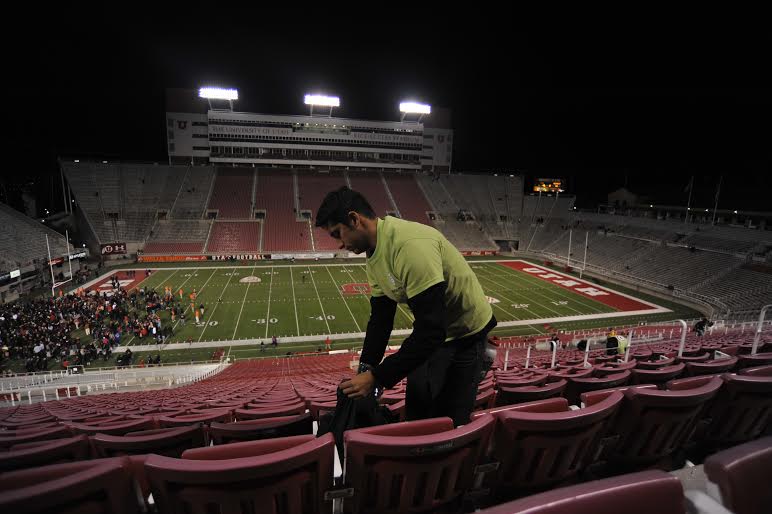You’re on campus with an empty water bottle, a newspaper and an aluminum can, looking for the nearest recycling station. What you find instead are three different bins. You’re then left wondering where to dispose each item and why you can’t throw them away together.
Recycling on campus can be a daunting task due to a system that separates mixed paper, aluminum and plastic. The Sustainability Office and Facilities Management will launch two initiatives to help with this difficulty. The first is a survey to target specific areas of confusion, and the other is the Recycling Ambassador program, which aims to educate students on those topics.
The program was established because there were concerns about the difference between single stream and segregated recycling. Many households and businesses use single bins for all recyclable materials, which can lead to contamination, said Ayrel Clark-Proffitt, campus engagement coordinator of the U’s Sustainability Office. If a soiled paper plate is thrown in a bin with metals and plastics, it could potentially cause all the contents to be sent to the landfill.
To become a Recycling Ambassador, volunteers will take a 90-minute class on Jan. 13, followed by a one-hour tour of Rocky Mountain Recycling on Jan. 27.
The training is “intended to teach the participants about all the ins and outs about campus recycling,” Clark-Proffitt said.
Participants will volunteer 10 hours throughout the semester to educate other students. They will table on campus in February and March 2016, with the segregated recycling system set up for demonstration. The tabling will intentionally coincide with the RecycleMania tournament, where U.S. and Canadian colleges report the amount of recycling and trash collected each week and are ranked on volume per capita.
Facilities Management helped with the survey, and its recycling coordinator, Josh James, will help teach the class.
Sarah Martinez, a senior in international and environmental studies and a student coordinator for the program, said in an emailed statement that they hope to make recycling and waste a real issue to students.
“It’s easy to distance yourself from the issues when you just throw your trash in a bin and it goes to some magical far away place where it’s taken care of,” Martinez said. “Learning more about the issues … helps the campus community understand the bigger picture.”
The Sustainability Office launched the program sign-up at the beginning of December, and they’ve already exceeded the 30 person class limit. The office will create a wait list for students who still want to participate.
Martinez hopes knowledge from the program will expand beyond campus.
“[Student volunteers] will be able to take this knowledge and … tell their friends and family and make a real difference in the world,” she said, “which in and of itself is its own reward.”
@sarahnlegg


